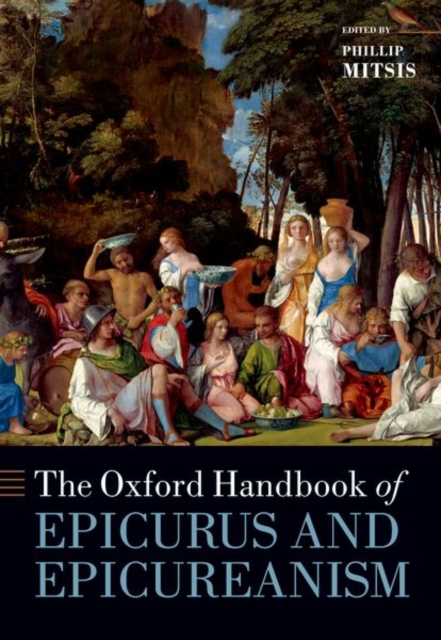The Oxford Handbook of Epicurus and Epicureanism

The Oxford Handbook of Epicurus and Epicureanism
subsequent disputes, thus offering readers the opportunity of measuring Epicurean arguments against a wide range of opponents--from Platonists, Aristotelians and Stoics, to Hegel and Nietzsche, and finally on to such important contemporary philosophers as Thomas Nagel and Bernard Williams. The volume offers separate and detailed discussions of two fascinating and ongoing sources of Epicurean arguments, the Herculaneum papyri and the inscription of Diogenes of Oenoanda. Our understanding of Epicureanism is continually being enriched by these new sources of evidence and the contributors to this volume have been able to make use of them in presenting the most current understanding of Epicurus's own views. By the same token, the second half of the volume is devoted to the extraordinary influence of Epicurean doctrines, often either neglected or misunderstood, in literature, political thinking, scientific innovation, personal conceptions of freedom and happiness, and in philosophy generally. Taken together, the contributions in this volume offer the most comprehensive and detailed account of Epicurus and Epicureanism available in English.
PRP: 539.92 Lei
Acesta este Prețul Recomandat de Producător. Prețul de vânzare al produsului este afișat mai jos.
485.93Lei
485.93Lei
539.92 LeiLivrare in 2-4 saptamani
Descrierea produsului
subsequent disputes, thus offering readers the opportunity of measuring Epicurean arguments against a wide range of opponents--from Platonists, Aristotelians and Stoics, to Hegel and Nietzsche, and finally on to such important contemporary philosophers as Thomas Nagel and Bernard Williams. The volume offers separate and detailed discussions of two fascinating and ongoing sources of Epicurean arguments, the Herculaneum papyri and the inscription of Diogenes of Oenoanda. Our understanding of Epicureanism is continually being enriched by these new sources of evidence and the contributors to this volume have been able to make use of them in presenting the most current understanding of Epicurus's own views. By the same token, the second half of the volume is devoted to the extraordinary influence of Epicurean doctrines, often either neglected or misunderstood, in literature, political thinking, scientific innovation, personal conceptions of freedom and happiness, and in philosophy generally. Taken together, the contributions in this volume offer the most comprehensive and detailed account of Epicurus and Epicureanism available in English.
Detaliile produsului











